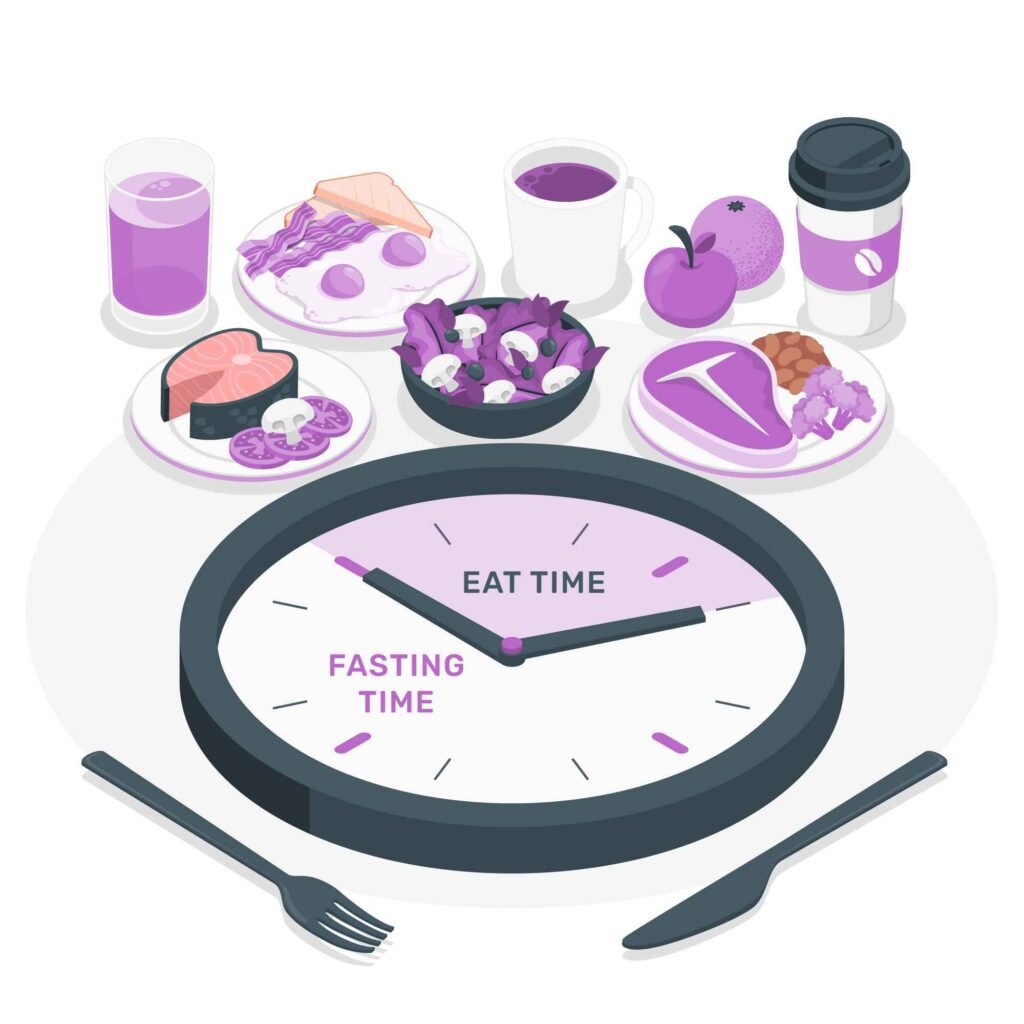
Understanding the Alkaline Diet: Can pH Balance Improve Health
Understanding the Alkaline Diet: Can pH Balance Improve Health?
Introduction to the Alkaline Diet
The alkaline diet has garnered significant attention in the health and wellness community due to its claims of improving health by balancing the body’s pH levels. Proponents of this diet believe that consuming alkaline foods can reduce inflammation, boost energy levels, and prevent chronic diseases. But how much of this is supported by science, and what does it truly mean to maintain a balanced pH? To understand this better, let’s first explore the basic principles behind the alkaline diet.
What is the Alkaline Diet?
The Science Behind pH Levels
The concept of the alkaline diet is based on the body’s pH balance. The term pH measures how acidic or alkaline a substance is, on a scale of 0 to 14. A pH of 7 is neutral, while values below 7 are acidic and those above 7 are alkaline. Importantly, the human body maintains a tightly regulated blood pH, typically between 7.35 and 7.45, which is slightly alkaline. This balance is crucial because even minor deviations can affect bodily functions.
However, different parts of the body have varying pH levels. For instance, the stomach is highly acidic, which helps break down food, while the blood remains consistently alkaline. Advocates of the alkaline diet argue that eating alkaline foods can reduce the overall acidity in your body, potentially improving health. But does it really work that way? Let’s look at how the diet is designed to function.
How the Diet Works
Essentially, the alkaline diet categorizes foods as acidic, neutral, or alkaline based on their potential renal acid load (PRAL) after digestion. In simpler terms, this refers to the effect a food has on the body’s pH after it has been metabolized. Therefore, foods with a low or negative PRAL score are considered alkaline, while those with a high PRAL score are considered acidic.
Accordingly, the alkaline diet encourages the consumption of foods that promote alkalinity in the body. These include:
- Fruits like bananas, apples, and citrus fruits
- Vegetables such as spinach, broccoli, and kale
- Nuts and seeds
- Legumes
Conversely, the diet recommends minimizing acidic foods, such as:
- Meat and poultry
- Dairy products
- Processed foods
- Refined sugars
By shifting the balance toward more alkaline foods, the goal is to create a healthier internal environment. But what are the actual claims made by supporters of this diet?
Key Claims of the Alkaline Diet
1. Improved Bone Health
One of the primary claims of the alkaline diet is that it supports bone health. Advocates suggest that a diet high in acidic foods can lead to calcium leaching from the bones to neutralize the acidity, ultimately weakening them. As a result, they believe that an alkaline diet can prevent bone loss and improve bone density.
What the Science Says:
Some studies suggest that diets rich in fruits and vegetables may contribute to better bone health. However, research specifically linking pH balance to bone density is inconclusive. Although the theory remains debatable, eating more nutrient-dense plant foods does provide essential vitamins and minerals that support bone strength.
2. Enhanced Energy and Mental Clarity
Another common claim is that reducing acidic foods leads to higher energy levels and improved mental focus. Supporters argue that acidic foods can cause fatigue and sluggishness, while alkaline foods promote vitality.
Potential Reasons:
Alkaline foods, such as fruits and vegetables, are packed with essential nutrients and antioxidants. These nutrients can help stabilize blood sugar levels, improve digestion, and boost overall energy. Consequently, incorporating more of these foods may indeed help you feel more alert and focused.
3. Reduced Risk of Chronic Diseases
Many proponents of the alkaline diet also believe it can reduce the risk of chronic diseases, including heart disease, cancer, and diabetes. This claim is based on the idea that an acidic environment in the body contributes to inflammation and disease progression.
Scientific Perspective:
While there is limited evidence to support the idea that pH balance directly prevents chronic diseases, a diet high in fruits, vegetables, and whole foods has been proven to reduce inflammation and support overall health. Therefore, the benefits likely stem from the quality of the diet rather than pH balance alone.
What Foods Should You Eat?
Alkaline Foods to Include
To follow the alkaline diet, it’s essential to focus on foods that are naturally alkaline-forming. Here are some key examples:
- Leafy Greens: Foods like spinach, kale, and collard greens are not only alkaline but also rich in calcium and magnesium.
- Cruciferous Vegetables: Options such as broccoli, cauliflower, and Brussels sprouts help promote alkalinity while providing essential nutrients.
- Fruits: Despite their acidic taste, lemons and other citrus fruits are alkaline-forming in the body. Watermelon, apples, and mangoes are also excellent choices.
- Nuts and Seeds: Almonds, chia seeds, and flaxseeds are great sources of healthy fats and promote a balanced pH.
Acidic Foods to Limit
On the other hand, limiting your intake of the following acidic foods is recommended:
- Processed Foods: Chips, snacks, and sugary drinks can contribute to acidity and inflammation.
- Red Meat and Poultry: These protein sources have a high acid load and should be consumed in moderation.
- Dairy Products: Cheese, milk, and yogurt are considered acidic, though they provide essential nutrients.
- Refined Grains: White bread, pasta, and pastries are best replaced with whole grain options.
The Role of Hydration in pH Balance
Hydration is another crucial component of maintaining overall health. Drinking plenty of water supports your body’s natural detoxification processes and helps maintain pH balance. Interestingly, alkaline water — which has a pH above 7 — has gained popularity for its supposed health benefits. However, while alkaline water may temporarily alter the pH of urine, its long-term benefits compared to regular water remain unclear.
To stay hydrated, consider drinking water infused with lemon, cucumber, or mint. These additions not only enhance flavor but also promote hydration and support an alkaline environment.
Potential Benefits of the Alkaline Diet: Fact or Fiction?
The alkaline diet promises numerous health benefits, from reducing inflammation to improving bone health. While the scientific community debates some of these claims, many benefits arise naturally from consuming more whole, plant-based foods. Let’s break down the potential advantages and separate fact from fiction.
1. Promotes Bone Health and Strength
One of the most widely discussed benefits of the alkaline diet is its ability to support bone health. Advocates claim that a high-acid diet can leach calcium from bones to neutralize acidity, leading to weakened bones and increased fracture risk. Consequently, switching to an alkaline diet is believed to protect against osteoporosis.
What Does the Science Say?
Some studies suggest that consuming more fruits and vegetables — key components of the alkaline diet — can benefit bone health. These foods are rich in potassium, magnesium, and calcium, all of which support bone density. However, researchers have not conclusively proven that pH balance directly affects bone strength. Rather, it seems that the nutrients in alkaline foods contribute to healthier bones.
Practical Tip:
Include calcium-rich, alkaline-friendly foods like leafy greens, almonds, and tofu in your diet. This way, you can support bone health without relying solely on dairy products.
2. Reduces Inflammation
Chronic inflammation is linked to various health issues, including arthritis, heart disease, and cancer. The alkaline diet may help combat inflammation by emphasizing anti-inflammatory foods and reducing processed, acidic foods that promote inflammation.
Why Alkaline Foods Help:
- Fruits and Vegetables: Rich in antioxidants, these foods fight oxidative stress, which is a key driver of inflammation.
- Healthy Fats: Alkaline-friendly options like avocados and almonds provide essential fats that help reduce inflammation.
- Fiber: Plant-based foods are high in fiber, which supports gut health and lowers inflammation.
Practical Tip:
Add a variety of colorful fruits and vegetables to your meals. For example, berries, broccoli, and bell peppers are excellent choices for their anti-inflammatory properties.
3. Boosts Energy Levels
Feeling fatigued? The alkaline diet claims to improve energy levels by reducing acidic foods, which are believed to cause sluggishness. While this claim lacks direct scientific proof, the diet’s focus on nutrient-dense foods naturally boosts energy.
How It Works:
- Stable Blood Sugar: Whole foods like fruits, vegetables, and whole grains help stabilize blood sugar levels, preventing energy crashes.
- Improved Digestion: An alkaline diet supports a healthier digestive system, which in turn enhances nutrient absorption and energy production.
- Reduced Toxins: By minimizing processed foods, you reduce the intake of harmful additives that can contribute to fatigue.
Practical Tip:
Start your day with an energy-boosting green smoothie made with spinach, banana, almond milk, and chia seeds. This combination provides vitamins, minerals, and healthy fats to keep you energized.
4. Supports Heart Health
Heart disease remains a leading cause of death worldwide. Fortunately, an alkaline diet may promote heart health by encouraging the consumption of heart-friendly foods.
Key Benefits for the Heart:
- Lower Blood Pressure: Potassium-rich foods like bananas, avocados, and leafy greens help regulate blood pressure.
- Healthy Cholesterol Levels: By reducing red meat and processed foods, the alkaline diet lowers intake of saturated fats, which can contribute to high cholesterol.
- Anti-Inflammatory Effects: Lowering inflammation supports overall cardiovascular health and reduces the risk of heart disease.
Practical Tip:
Incorporate heart-healthy, alkaline-friendly meals like quinoa salad with avocado, cherry tomatoes, and olive oil. This dish provides healthy fats, fiber, and antioxidants to protect your heart.
5. Aids in Weight Management
Maintaining a healthy weight is crucial for overall well-being. The alkaline diet can help with weight management because it focuses on low-calorie, nutrient-dense foods.
Why It Works:
- High Fiber Content: Alkaline foods are often high in fiber, which keeps you feeling full for longer and reduces overeating.
- Reduced Processed Foods: By cutting out processed and sugary foods, you naturally reduce calorie intake.
- Improved Digestion: Better digestion leads to better nutrient absorption and fewer cravings.
Practical Tip:
Replace processed snacks with alkaline-friendly options like raw almonds, fresh fruit, or veggie sticks with hummus. These choices are satisfying, healthy, and support weight management.
6. Enhances Detoxification
The body naturally detoxifies itself through the liver, kidneys, and lymphatic system. However, the alkaline diet may enhance this process by reducing the load of toxins from processed foods.
How Alkaline Foods Support Detox:
- Hydration: Drinking alkaline water or lemon-infused water helps flush out toxins.
- Antioxidants: Fruits and vegetables provide antioxidants that neutralize free radicals and protect cells.
- Reduced Toxin Intake: By avoiding processed foods, you limit exposure to harmful chemicals and additives.
Practical Tip:
Begin your day with a glass of warm water and a squeeze of fresh lemon juice. This simple habit supports digestion and helps kick-start the detox process.
Understanding the Science: What’s Real and What’s Not?
While the alkaline diet promotes many healthy eating principles, it’s essential to understand which claims are backed by science.
What the Science Confirms:
- Eating More Fruits and Vegetables: A diet rich in these foods supports overall health, reduces inflammation, and lowers the risk of chronic diseases.
- Reducing Processed Foods: Cutting back on processed and sugary foods benefits heart health, weight management, and energy levels.
- Hydration: Staying well-hydrated is crucial for digestion, energy, and detoxification.
What’s Still Debated:
- Blood pH Balance: The body tightly regulates blood pH, and diet has little effect on this balance. Instead, urine pH can vary based on diet.
- Cancer Prevention: While a healthy diet reduces cancer risk, the direct link between alkalinity and cancer prevention remains unproven.
Practical Strategies for Following the Alkaline Diet
Transitioning to an alkaline diet can feel overwhelming at first. However, with the right strategies, you can seamlessly incorporate this lifestyle into your daily routine. The key is to stay organized, flexible, and motivated.
1. Master Meal Preparation
Meal prep is one of the most effective ways to stick to the alkaline diet. By planning and preparing meals in advance, you reduce the risk of grabbing unhealthy options when you’re short on time.
Tips for Efficient Meal Prep:
- Plan Weekly Menus: Spend time each week creating a menu that includes a balance of fruits, vegetables, grains, and plant-based proteins. This ensures you always have a variety of alkaline-friendly meals.
- Batch Cooking: Prepare large quantities of staples like quinoa, brown rice, lentils, and roasted vegetables. Store them in airtight containers to mix and match throughout the week.
- Pre-Cut Vegetables: Wash and chop vegetables ahead of time. Store them in the refrigerator for easy snacking, salads, or stir-fries.
- Portion Out Snacks: Pre-portion snacks like almonds, walnuts, or fresh fruit. Having healthy snacks ready helps you avoid reaching for processed alternatives.
2. Stock an Alkaline-Friendly Kitchen
A well-stocked kitchen makes sticking to the alkaline diet far easier. Having the right ingredients on hand allows you to whip up nutritious meals without hassle.
Essential Pantry Staples:
- Whole Grains: Quinoa, brown rice, buckwheat, and millet.
- Legumes: Lentils, chickpeas, and black beans.
- Nuts and Seeds: Almonds, chia seeds, flaxseeds, and pumpkin seeds.
- Healthy Oils: Olive oil, avocado oil, and coconut oil.
- Spices and Herbs: Turmeric, ginger, basil, and oregano.
- Fruits and Vegetables: Fresh and frozen options like leafy greens, bell peppers, broccoli, and apples.
Hydration Essentials:
- Alkaline Water: While not a requirement, alkaline water can support hydration.
- Herbal Teas: Chamomile, peppermint, and ginger teas are excellent for hydration and digestion.
- Infused Water: Add lemon, cucumber, or mint to water for added flavor and alkalinity.
3. Maintain Balance with the 80/20 Rule
Strict diets are difficult to maintain. Instead of eliminating all acidic foods, aim for a balanced approach with the 80/20 rule. Focus on making 80% of your diet alkaline and allow 20% for acidic foods. This flexibility makes the diet more sustainable and less restrictive.
Examples of Acidic Foods in Moderation:
- Lean proteins like chicken and turkey
- Whole grains like oats or wheat
- Dairy products in small amounts, such as yogurt or cheese
This approach helps you enjoy a variety of foods while still prioritizing your health goals.
4. Stay Hydrated to Support pH Balance
Hydration plays a critical role in maintaining overall health and supporting the body’s natural detox processes. Drinking enough water helps flush out toxins, supports digestion, and enhances energy levels.
Alkaline Hydration Tips:
- Drink Lemon Water: Although lemons are acidic, they have an alkalizing effect on the body after digestion. Start your day with a glass of warm lemon water to kick-start hydration.
- Try Herbal Teas: Herbal teas like peppermint, ginger, and rooibos are naturally alkaline and support digestion.
- Avoid Sugary Drinks: Cut out sodas, energy drinks, and excessive coffee, as these can increase acidity and dehydrate the body.
5. Listen to Your Body’s Cues
Every person is different, and what works for one individual may not work for another. Pay attention to how your body responds to the alkaline diet. Notice improvements in energy levels, digestion, and mental clarity, and adjust your food choices accordingly.
Signs the Diet is Working:
- Increased Energy: You may feel more alert and less fatigued.
- Improved Digestion: Less bloating, heartburn, or digestive discomfort.
- Better Skin Health: Reduced acne or skin irritation due to lower inflammation.
Make Adjustments as Needed:
If you feel low in energy or miss certain nutrients, incorporate balanced portions of protein-rich or nutrient-dense foods to meet your needs.
Overcoming Challenges on the Alkaline Diet
Sticking to the alkaline diet long-term can come with challenges. Knowing how to navigate these obstacles can keep you on track.
Common Challenges and Solutions:
- Eating Out: Many restaurants offer salads, vegetable-based dishes, or customizable meals. When possible, opt for grilled veggies, salads, or grain bowls.
- Cravings for Processed Foods: Keep healthy snacks on hand, such as nuts, fresh fruit, or homemade energy bites, to curb cravings.
- Time Constraints: Batch cooking on weekends or setting aside time for meal prep can save time during the week.
- Lack of Variety: Experiment with new recipes, cooking techniques, and international cuisines to keep meals exciting.
Lifestyle Tips for Long-Term Success
1. Educate Yourself
Continue learning about the benefits of an alkaline diet and the importance of nutrient-dense foods. Staying informed helps reinforce your commitment to a healthier lifestyle.
2. Join a Community
Engage with others who follow the alkaline diet. Whether through online forums, social media groups, or local wellness events, connecting with like-minded individuals can provide support and inspiration.
3. Track Your Progress
Keep a journal to monitor how the alkaline diet affects your energy, mood, and overall health. Tracking progress helps you stay motivated and identify what works best for you.
4. Practice Mindful Eating
Pay attention to portion sizes and savor each meal. Mindful eating helps you appreciate food more and avoid overeating.
5. Stay Flexible
Life can be unpredictable. If you occasionally stray from the diet, don’t stress. Focus on getting back on track with your next meal and maintaining balance overall.



